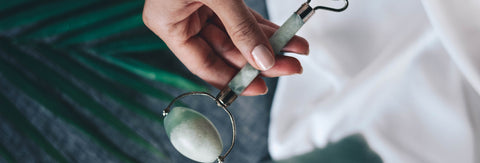Nutrition for Beauty from Within
Antioxidants
You have likely heard of the term antioxidants; they protect the cells in your body from damage. Cellular damage is a natural part of aging, but it can also happen when you are exposed to toxins such as pollution or cigarette smoke. Common antioxidants include vitamins A, C and E and the mineral selenium.
- Eat a rainbow of colours every day. This is not just because fruits and vegetables contain a wide variety of vitamins and minerals, but they also contain flavonoids. Flavonoids are one of the main compounds which make up the bright colours found in fruits and vegetables. Not only are they visually appealing, they are also high in antioxidants. Considering “over 3/4 of Canadians are not meeting Canadian Food Guide’s recommendations regarding the number of daily servings of Fruits and Vegetables”[1] this is something that most of us could work on.
Collagen
Vitamin C is most recognized as an antioxidant, but did you know that one of its main purposes is to help our body make collagen? Collagen makes up 70 to 80% of the protein found in the middle layer of our skin (the dermis). However, as we age, our bodies begin to make less collagen, leading to a physical look of aging, including wrinkles.[2] On average, the collagen content of the skin surface has been shown to decline approximately 1% per year.[3]
- Bone broth is a great way to consume collagen without your body having to work to make it. If soup is not something you want daily, (particularly in the hot summer), you can find collagen supplements.
- Specific types of collagen such as VERISOL® found in Jamieson’s Collagen Antiwrinkle are backed by clinical research, allowing the Health Canada claims, “helps increase skin elasticity and the appearance of smooth skin” and “helps reduce wrinkles and fine lines in 28 days.”[4]
Beauty Sleep
Sleep is our body’s chance to rejuvenate. Unfortunately, roughly 10% of Canadian adults have persistent insomnia, while 20% to 25% report occasional insomnia.[5] Insomnia can lead to decreased energy, mood disturbances, and difficulty concentrating. We know we are not at our cognitive best when tired, but it can also be hard to hide it from others, with dark circles under the eyes.
For a better night’s sleep:
- Avoid electronics for at least an hour before bed.
- Use a sleep mask or blackout blinds for windows and use a white noise app if noises are keeping you awake.
- Find a mattress and pillow that fit your individual body type and the way you sleep (back, side or front).
- Natural material such as silk or cotton for your sheets and pillowcases are more breathable than synthetic which can make some people sweaty. Silk pillowcases may be better than cotton, as cotton could pull moisture from your face if you are a side or stomach sleeper. Whichever you use, make sure to wash at least once per week to remove bacteria, as well as chemicals from cosmetics and hair products.
- If you are prone to skin reactions, check your laundry detergent, as you may benefit by looking for a more natural, scent-free option to avoid allergic reactions.
- If you have trouble falling asleep or staying asleep, you may want to try melatonin to reset your sleep/wake cycle.
Protect Your Skin From the Sun
Getting outside to breathe fresh air is important for stress reduction; however we also need to protect our skin from the sun. Did you know that sunlight has 2 different types of rays, UVA and UVB? UVB rays cause sunburns while UVA rays penetrate deep into the skin and can cause wrinkles, age spots and skin cancer including melanoma. Some people think getting a “base tan” in a tanning bed before the summer is safer and will help them avoid burns. This is just not true. Artificial tanning machines expose you to 15x the UV rays than you would receive from the sun. It has also been shown that “early exposure to tanning beds can increase a person’s chance of developing melanoma by up to 75%.”[6]
Be Sun Safe
- Use sunscreen or a moisturizer with at least 30 SPF to help protect your skin.
- Check the UV index level on your weather app each morning. When it shows 3 or more, try to reduce your time in the sun between the hours of 11 a.m. and 3 p.m.[7]
- When following sun safety rules of covering up, wearing sunscreen and seeking shade, make sure you are also supplementing with vitamin D. Whenever you protect yourself from cancer causing UV rays, unfortunately you are also stopping your body’s ability to make vitamin D from the sun.
[1] Krueger H, Koot J, Andres E. (2017). The economic benefits of fruit and vegetable consumption in Canada. Canadian Journal of Public Health. 1008(2): e152-e161.
[2] WebMD. An Overview of the Skin. Accessed June 19, 2020 at: https://www.webmd.com/beauty/cosmetic-procedures-overview-skin#1
[3] Ganceviciene R. et al. (2012). Skin anti-aging strategies. Dermato-Endocrinology. Jul 1; 4(3): 308-319.
[4] Health Canada. Natural Health Product Number 80072175. Accessed June 19, 2020 at: https://health-products.canada.ca/lnhpd-bdpsnh/info.do?licence=80072175
[5] Canadian Sleep Society. Insomnia Patient Information Brochure. Accessed June 22, 2020 at: https://css-scs.ca/resources/brochures/insomnia
[6] Melanoma Network of Canada. Sun Safety. Accessed June 22, 2020 at: https://www.melanomanetwork.ca/sun-safety/
[7] Canadian Cancer Society The Six Best Ways to be Sun Safe. Accessed June 18, 2020 at: https://www.cancer.ca/en/prevention-and-screening/reduce-cancer-risk/make-healthy-choices/be-sun-safe/the-6-best-ways-to-be-sun-safe/?region=on



